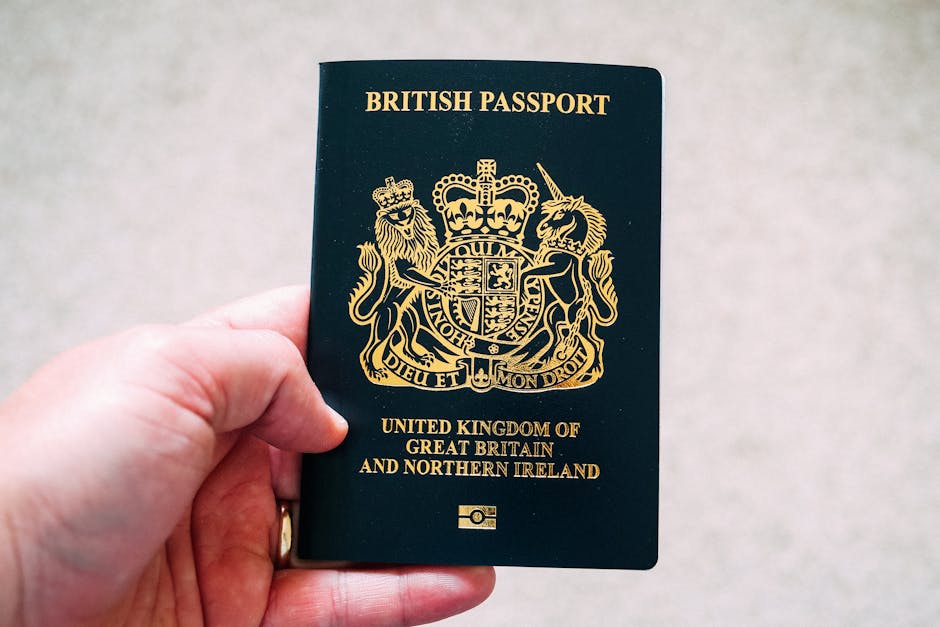What Makes A Will Legally Valid? Common Reasons Why Wills Are Contested In The Uk
In the United Kingdom, ensuring the legal validity of a will is paramount to ensure that the wishes of the deceased are properly carried out. Surprisingly, statistics reveal that a significant number of wills are contested in the UK each year. According to recent data, approximately 8% of all probate cases involve disputes over wills. This highlights the importance of understanding what makes a will legally valid and the common reasons why they may be contested.
To have a legally valid will in the UK, certain requirements must be met regarding its execution and content. Proper execution involves adhering to specific formalities during the signing and witnessing process, while clarity and precision in outlining beneficiaries and assets are crucial for avoiding ambiguity and potential disputes.
This article aims to explore these requirements for a legally valid will in detail, including appointing an executor and guardian as well as seeking legal advice for both will preparation and contestation. By understanding these essential aspects, individuals can navigate through this complex area with confidence, ensuring their final wishes withstand any potential challenges or disagreements.
Key Takeaways
- Specific requirements must be met for a legally valid will in the UK, including being in writing, signed by the testator or someone under their direction, and witnessed by two individuals.
- Careful consideration is needed when appointing an executor and guardian, ensuring they have a good understanding of financial matters, sound judgement, and share similar values.
- Clarity and specificity in the will, as well as clear identification of assets and beneficiaries, can help avoid disputes and confusion.
- Seeking legal advice is crucial in preparing a will, understanding inheritance tax implications, and minimising the likelihood of disputes arising after death.
Requirements for a Legally Valid Will in the UK

In order for a will to be considered legally valid in the UK, it must meet certain requirements outlined by the law. These requirements are designed to ensure that the testator’s wishes are accurately represented and prevent any potential disputes or challenges to the validity of the will.
One common validity challenge is testamentary capacity, which refers to the mental ability of the testator to understand the nature and consequences of making a will. To establish testamentary capacity, it is essential that the testator understands the extent of their assets, comprehends who would normally expect to benefit from their estate, and can appreciate any potential claims against their estate. Additionally, they must not suffer from any mental disorder that could impair their judgement or influence their decisions regarding inheritance.
Furthermore, there are other formalities that need to be met when creating a legally valid will. The will must be in writing and signed by the testator or another person under their direction in their presence. It should also be witnessed by two individuals who are present at the same time as each other and sign in the presence of both each other and the testator.
By ensuring these requirements are met, one can minimise potential challenges to a will’s validity. However, it is crucial to also consider proper execution of your will without compromising its legality.
Ensuring Proper Execution of Your Will

To ensure the proper execution of a will, it is essential to follow the prescribed legal procedures and requirements. Executing a will correctly involves several key steps that must be adhered to in order for the will to be considered legally valid in the UK. One crucial aspect of executing a will is the presence of witnesses during its signing.
The importance of witnesses cannot be overstated when it comes to executing a will. In the UK, two witnesses are required to observe the testator, or person making the will, sign it. These witnesses must also sign their names in each other’s presence and in the presence of the testator. This requirement ensures that there is independent corroboration of the testator’s intent and helps prevent any potential fraud or undue influence.
Incorporate an unordered 5 item bullet list:
- Witnesses play a critical role in confirming that the testator willingly signed their own will.
- The witnesses should have no personal interest in inheriting from the estate.
- They should be competent individuals who understand their role and responsibilities.
- The witnesses’ contact information should also be included within the document.
- If any updates or amendments are made to the original will, these changes must also be witnessed and signed accordingly.
By following these guidelines for ensuring proper execution with witness involvement, one can help minimise potential disputes or challenges that may arise after their passing regarding testamentary capacity or coercion.
Moving forward into appointing an executor and guardian…
…one should carefully consider individuals who are trustworthy, responsible, and capable of carrying out the duties and responsibilities associated with these roles. It is important to select someone who not only understands and respects your wishes but also has the necessary skills and knowledge to manage your estate and make decisions in the best interest of your loved ones.
Appointing an Executor and Guardian

Appointing an executor and guardian requires careful consideration of individuals who possess the necessary qualities and capabilities to fulfil the responsibilities associated with these roles.
When appointing an executor, it is important to choose someone who can effectively administer your estate and carry out your wishes as outlined in your will. This person should have a good understanding of financial matters, be trustworthy, and demonstrate sound judgement. Additionally, it may be prudent to appoint an alternate executor in case the primary executor is unable or unwilling to fulfil their duties.
Similarly, selecting a suitable guardian for minor children is a crucial decision that should not be taken lightly. The appointed guardian will have the responsibility of caring for and making decisions on behalf of the children in the event of your death. It is essential to choose someone who shares similar values and beliefs regarding parenting, as well as someone who has the capacity to provide a stable and nurturing environment for the children.
When considering potential executors or guardians, it is advisable to discuss your intentions with them beforehand to ensure their willingness to take on these roles. It may also be beneficial to seek legal advice when making these appointments, as laws regarding executors and guardians vary by jurisdiction.
By carefully selecting an executor and guardian who are capable of fulfilling their respective roles, you can help minimise the likelihood of disputes arising after your passing. In the next section about avoiding ambiguity and disputes in your will, we will explore additional measures you can take to ensure that your wishes are carried out smoothly without any confusion or contention.
Avoiding Ambiguity and Disputes in Your Will

One key aspect of draughting a will is ensuring clarity and specificity to avoid potential disputes. Studies have shown that approximately 50% of wills that are contested involve ambiguities or unclear language. To minimise the risk of misunderstandings and to clarify the intentions of the testator, it is crucial to draught a will in a manner that leaves no room for interpretation.
To avoid ambiguity, it is important to use clear and unambiguous language throughout the document. This means using precise terms and avoiding vague or general statements. For example, instead of stating ‘I leave my car to my children,’ it would be more prudent to specify which children should receive the car by providing their full names.
Another way to prevent disputes is by being specific about assets and beneficiaries. Clearly identifying each asset and explicitly naming each beneficiary can help eliminate any confusion or disagreements about who is entitled to what. Furthermore, including detailed instructions regarding how certain assets should be distributed can further clarify the testator’s intentions.
In addition, seeking professional legal advice when draughting a will can be beneficial in avoiding future disputes. An experienced solicitor can provide guidance on legal requirements, offer insights into potential issues that may arise, and ensure that all necessary provisions are included.
By taking these precautions and ensuring clarity in the language used within a will, individuals can significantly reduce the likelihood of disputes arising after their passing. This not only provides peace of mind but also helps ensure that their final wishes are respected.
Transitioning into the subsequent section about contesting a will: common grounds for disputes without explicitly stating ‘step’, it is important for individuals to understand common reasons why wills are contested in order to better safeguard against potential challenges.
Contesting a Will: Common Grounds for Disputes

Disputes surrounding wills often arise due to various grounds, highlighting the need for individuals to be aware of these common issues in order to safeguard their final wishes. Challenging the validity of a will is one such ground that can lead to inheritance disputes. There are several reasons why a will’s validity may be contested in the UK.
One common ground for dispute is lack of testamentary capacity. This means that the testator (the person making the will) must have been mentally capable of understanding the nature and effect of creating a will at the time it was made. If there are concerns about the testator’s mental state or if they were under undue influence, it can lead to challenges on this basis.
Another reason for contestation is improper execution. A will must meet certain formal requirements under UK law, including being in writing, signed by the testator, and witnessed by two independent witnesses who are present at the same time. Failure to meet these requirements can result in a challenge to its validity.
Fraud or forgery is also a common ground for disputing a will. If there is evidence that someone manipulated or altered a will without the knowledge or consent of the testator, it can cast doubt on its authenticity.
Understanding these potential grounds for dispute emphasises how important it is for individuals to seek legal advice when preparing and contesting a will. By consulting with experienced professionals, individuals can ensure that their final wishes are properly documented and minimise the risk of disputes arising after their passing.
In seeking legal advice for will preparation and contestation, individuals can navigate through complex legal processes with confidence and reduce ambiguity surrounding their final wishes.
Seeking Legal Advice for Will Preparation and Contestation

Seeking professional legal counsel is crucial when it comes to ensuring the proper documentation and protection of one’s final wishes in matters concerning will preparation and contestation. This is because legal experts have the necessary knowledge and experience to guide individuals through the complex process of draughting a will that adheres to all applicable laws and regulations.
One important aspect that legal professionals can assist with is choosing beneficiaries wisely. They can provide advice on how to distribute assets in a fair and equitable manner, taking into account any potential conflicts or disputes that may arise amongst family members or other interested parties. By carefully considering each beneficiary’s needs and circumstances, an individual can help minimise the likelihood of a will being contested.
Furthermore, seeking legal advice is essential for understanding inheritance tax implications. Inheritance tax is a tax levied on assets transferred from one person to another upon their death. The amount of tax payable depends on various factors, such as the value of the estate and the relationship between the deceased and the beneficiaries. Legal professionals can offer guidance on how to structure an individual’s affairs in a way that minimises their inheritance tax liability while still fulfilling their wishes regarding asset distribution.
By engaging with legal experts during will preparation and contestation processes, individuals can ensure that their final wishes are properly documented, beneficiaries are chosen wisely, and inheritance tax implications are understood. This not only provides peace of mind but also helps reduce the likelihood of disputes arising after one’s passing.
Frequently Asked Questions
Can I include digital assets, such as social media accounts or cryptocurrency, in my will?
Including digital assets in a will is possible and increasingly necessary. Specifying ownership of digital assets is crucial to ensure their proper distribution after death. However, there are potential challenges in dealing with these assets due to their intangible nature and complex legal regulations.
It is important to clearly identify and describe these assets in the will, as well as appoint a trusted executor who understands how to handle them. Seeking professional advice can help navigate this evolving area of estate planning effectively.
What happens if I accidentally leave out a beneficiary from my will?
Accidentally omitting a beneficiary from a will can have unintended consequences, resulting in disputes and potential legal complications. The ramifications of disinheriting someone vary depending on the jurisdiction, but typically, the excluded individual may not receive any inheritance or financial support.
To rectify this mistake, legal options include draughting a codicil to amend the will or creating an entirely new will. Seeking professional advice from an experienced solicitor is crucial to ensure compliance with applicable laws and maximise the chances of resolving the issue efficiently.
Is it possible to disinherit a family member in the UK?
Disinheritance laws in the UK allow individuals to exclude family members from their wills. However, it is important to consider the legal rights of family members when doing so.
Under the Inheritance (Provision for Family and Dependants) Act 1975, certain eligible individuals can make a claim against an estate if they believe they have not been adequately provided for. These individuals include spouses, civil partners, children, and other dependants.
It is crucial to seek legal advice to ensure compliance with disinheritance laws and minimise the risk of successful claims.
Can a will be contested if the deceased person was not of sound mind at the time of making the will?
Contesting a will due to lack of mental capacity is possible if the deceased person was not of sound mind at the time of making the will.
In such cases, interested parties can challenge the validity of the will by arguing that the testator did not have the necessary mental capacity to understand and appreciate the consequences of their decisions.
Additionally, if it can be proven that there was undue influence exerted on the testator, it may also lead to challenging the validity of a will.
Are there any specific requirements for a handwritten will to be considered legally valid in the UK?
Handwritten wills, also known as holographic wills, are subject to specific requirements to be considered legally valid in the UK. According to the Wills Act 1837, a handwritten will must be entirely in the testator’s own handwriting and signed by them. The absence of witnesses is permissible for such wills. However, proving the validity of a handwritten will can be challenging due to potential issues with forgery or lack of clarity. Legal professionals often advise individuals to seek legal assistance when creating their wills to ensure compliance with the necessary requirements and minimise future disputes.
Conclusion
In order for a will to be legally valid in the UK, there are certain requirements that must be met. These include ensuring proper execution of the will, appointing an executor and guardian, and avoiding ambiguity and disputes. However, even with all these precautions, wills can still be contested.
Common grounds for disputes include lack of testamentary capacity, undue influence, fraud or forgery, and claims under the Inheritance (Provision for Family and Dependants) Act 1975.
It is important to seek legal advice when preparing a will or contesting one to ensure your wishes are properly upheld.
Conclusion: Seeking legal guidance when preparing a will or contesting one can provide you with the necessary expertise to navigate through the complexities of inheritance law. By doing so, you can safeguard against potential disputes that may arise due to invalidity or conflicting interests. Remember that draughting a legally sound will ensures that your final wishes are respected and creates lasting peace amongst your loved ones after your passing.
Contact us to discuss our services now!
